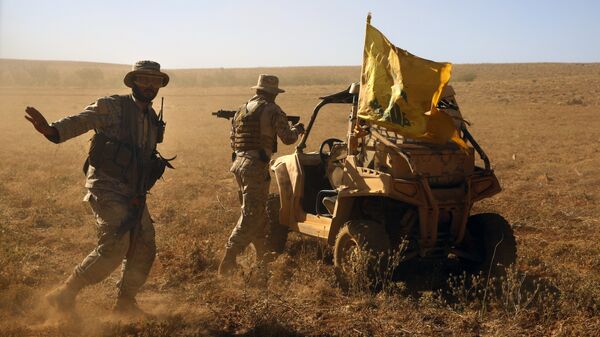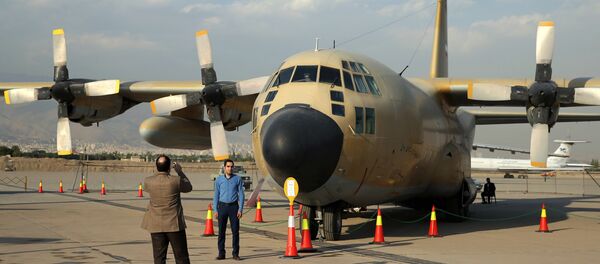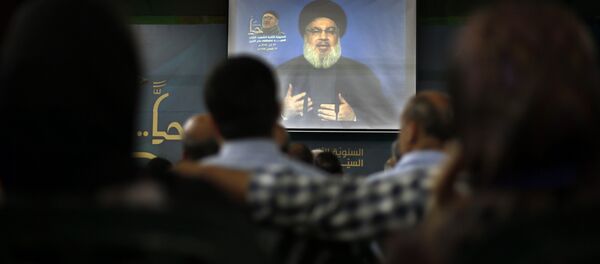The Israeli Army has accused Hezbollah of secretly setting up a new military observation post on Lebanon's border with Israel under the cover of an environmental NGO called 'Green Without Borders', AFP has reported, citing a senior Israeli military officer.
According to the officer, the outpost, located near the Shiite village of Aadaysit just across the border from Misgav Am, an Israeli kibbutz, violates UN Resolution 1701, which prohibits Hezbollah military activity in the area.
"This NGO isn't concerned with planting trees, it's a front," the officer charged, speaking to reporters during a briefing on Monday. The site contains "military equipment, infrastructure, binoculars, [and] high-end cameras," the officer added.
Tel Aviv has repeatedly accused Hezbollah of being an Iranian "terrorist proxy." Earlier this month, Prime Minister Netanyahu warned that Israel would "continue blocking Iran's attempts to use Syria and Lebanon as its forward bases to launch attacks on Israel."
The Israeli air force has repeatedly attacked Hezbollah forces operating in Syria on the side of the Syrian government in recent years.
Last month, speaking at the UN General Assembly, Netanyahu presented satellite photos of what he said were Hezbollah precision-guided missile installations at the international airport in Beirut, accusing the group of using the Lebanese capital's residents as human shields, and stressing that Tel Aviv would "not let [Hezbollah] get away with" their behavior. Lebanese acting Foreign Minister Gebran Bassil shot back, accusing Israel of "coming up with excuses to justify aggression." Last week, Hezbollah leader Hassan Nasrallah said the organization would not "help the enemy in its psychological war" by confirming or denying Israeli claims of the construction of a Lebanese missile factory.
Israel and Lebanon last fought a war in 2006, when Tel Aviv launched an invasion in response to a cross-border raid by Hezbollah and the abduction of two Israeli soldiers. The conflict lasted 34 days and led to the deaths of over 1,300 people and the destruction of much of Lebanon's infrastructure. The conflict was halted by a UN-brokered ceasefire.




